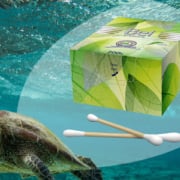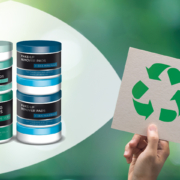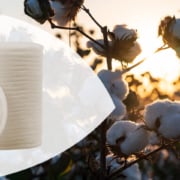Plastic free cotton swabs
Images of plastic waste in our oceans have prompted us to rethink the hygiene classic cotton swab, long a typical plastic product.
Not only were the plastic shafts replaced by sustainable paper shafts. We go one step further and have also changed the entire packaging concept to recyclable paper packaging. Thus, a product that was previously made of almost 100% plastic has undergone a turnaround to a plastic-free and biodegradable hygiene product based on renewable raw materials. In this way, a contribution to a better future can be made early in the morning during daily hygiene.
We have invested extensively in the plastic-free future of our cotton swabs and realigned our manufacturing in Turkey. All product components of our cotton swabs can be implemented according to current sustainability needs.
The paper used in our FSC®-certified paper stocks comes from either responsible sources or 100% recycled material. The raw material for the absorbent cotton heads is based exclusively on regenerative resources and consists of 100% cotton, which is moreover available as organic cotton from certified cultivation. This means that the cotton swabs are biodegradable due to their product structure and even meet the requirements for home and garden composting*.
In terms of product packaging, we rely on recyclable, FSC®-certified paper packaging in the spirit of the circular economy, for which only printing inks without mineral oils are used. With a focus on resource efficiency, the size of the folding carton packaging has been continuously optimized and the use of materials reduced to the bare minimum.
The cotton swab production is carried out with highly efficient production equipment of the latest generation. Thanks to fully integrated, highly automated production and packaging lines, paper shafts and cotton wadding become cotton swabs and packaged end products in record time. In doing so, we always keep an eye on our operational environmental goals through an independent environmental management system certified in accordance with ISO 14001.
*according to DIN EN 13432:2000-12 and NF T51-800:2015


